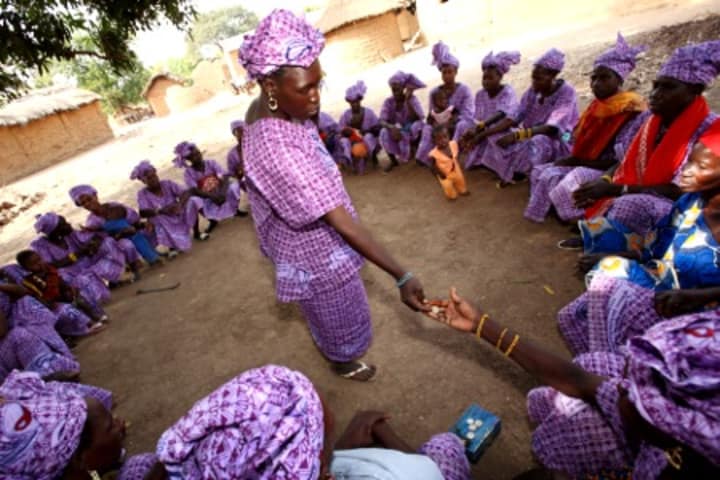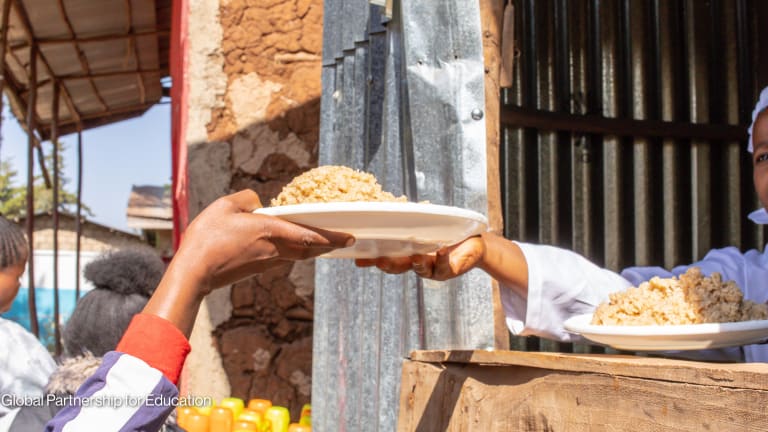
Oxfam was selected as a Devex Top 40 Development Innovator based on a poll of thousands of global development professionals who are part of Devex, the largest network of aid and relief workers in the world.
Announced on April 18, Devex Top 40 Development Innovators is an impressive listing of the world’s leading donor agencies & foundations, development consulting companies, implementing NGOs, and advocacy groups.
We asked each of the Innovators four questions to learn how they stay ahead to the curve and tackle old development challenges in new ways. Here’s how Oxfam responded:
‘Oxfam works with over 3,000 partners in more than 90 countries to find innovative and lasting solutions to poverty, suffering and injustice’
If you had to condense it to just one or two sentences, overall, what is it that makes your organization innovative?
Oxfam works together with a diverse and broad range of individuals and local groups in more than 90 countries to create sustainable and lasting solutions to poverty, suffering and injustice. Our focus on setting long-term goals and the rigor with which we measure our progress towards them makes us unique.
Can you provide a specific example of something your organization has done that is particularly innovative?
We recognize innovation as a major driving force in global economic growth and development. From new farming techniques in Cambodia that double crop yields, to community canteens in Haiti that provide food while reviving livelihoods, to projects in Mali that increase women’s control over economic resources and ultimately change gendered power relations, Oxfam has a successful track record in fostering innovative solutions to address development problems. Innovation and sustainability are crucial components to successful and impactfull developmental work.
More specifically, Oxfam, along with its local partners, has enabled farmers in Cambodia to combat climate change by combining the innovative System of Rice Intensification farming techniques with a mechanical weeder to increase crop yields by more than 100 percent. Combining SRI methods with the weeder developed by the local farmers constitutes a low-cost strategy for quickly increasing the yields of smallholder rice farmers, while decreasing the amount of water, seed, and agrochemical inputs. Growing more rice with less water and agrochemical inputs is essential for environmental sustainability and ensuring food security.
Simple innovations, like the weeder, encourage farmers to come together and share their ideas to drive technological improvements. This example demonstrates how Oxfam promotes practical and accessible innovations guided by the farmers themselves.
Oxfam will continue to partner with communities to develop innovative, life-saving solutions that enable them to overcome the challenges in the developmental world.
Looking ahead 10 years, what are some of the innovations in international development that your organization wants to be a part of?
Oxfam has been at the forefront of enabling many innovative solutions to poverty like Saving for Change, a sustainable, low-cost, virally replicating savings-led microfinance initiative that does not infuse any form of external capital and empowers groups of women to pool their savings, lend it to each other and use the power of the group to address social justice issues that they deem most relevant to their lives.
We have also partnered with the Poverty Safety Net Program in Ethiopia, which helps nearly eight million of the country’s most vulnerable residents by providing them with food or cash in exchange for work. We collaborated with public and private entities to enable poor farmers to use their labour to buy an index insurance product that significantly enhances their food security.
More recently, we partnered with the Coca-Cola Co. and SABMiller to produce an in-depth Poverty Footprint study about the economic and social impact of the Coca-Cola Co. and SABMiller value chain on communities in El Salvador and Zambia. The study looks across value chains to provide a comprehensive analysis of how companies are affecting sustainable livelihoods, health and well-being, diversity and gender, empowerment, and security and stability – all key dimensions of poverty.
We also use a mix of quantitative and qualitative methodologies to measure the long-term impact of our work with communities around the world. Oxfam has made significant progress towards greater accountability and improved systems for learning. As a development organization, we hold ourselves accountable to the people at the center of our programs. Oxfam’s innovative approach to evaluation and learning seeks to set a new standard for transparency and accountability.
We will continue to engage with other actors in the development and corporate arena to further these and other innovations that will enable us to create lasting solutions to poverty, suffering and injustice.
One factor in driving innovation at any organization is the talent you hire and the partnerships you make. How does your organization take into account innovation when it comes to cultivating talent and partners?
Diversity is a driving principle at Oxfam in all areas of our work, especially when hiring staff. We look for talented staff with diverse backgrounds and experiences who enrich our understanding of complex development issues and help us work collaboratively with partners and communities to develop solutions.
Poverty, suffering and injustice will never be eliminated unless we all work together. So, when working with partners, we proactively seek organizations that place communities at the forefront of driving the agenda. These organizations enable communities to develop solutions to their own problems and solidify access to and control over resources that can lift them out of poverty.
Check out the full listing of all Devex Top 40 Development Innovators on Facebook.




